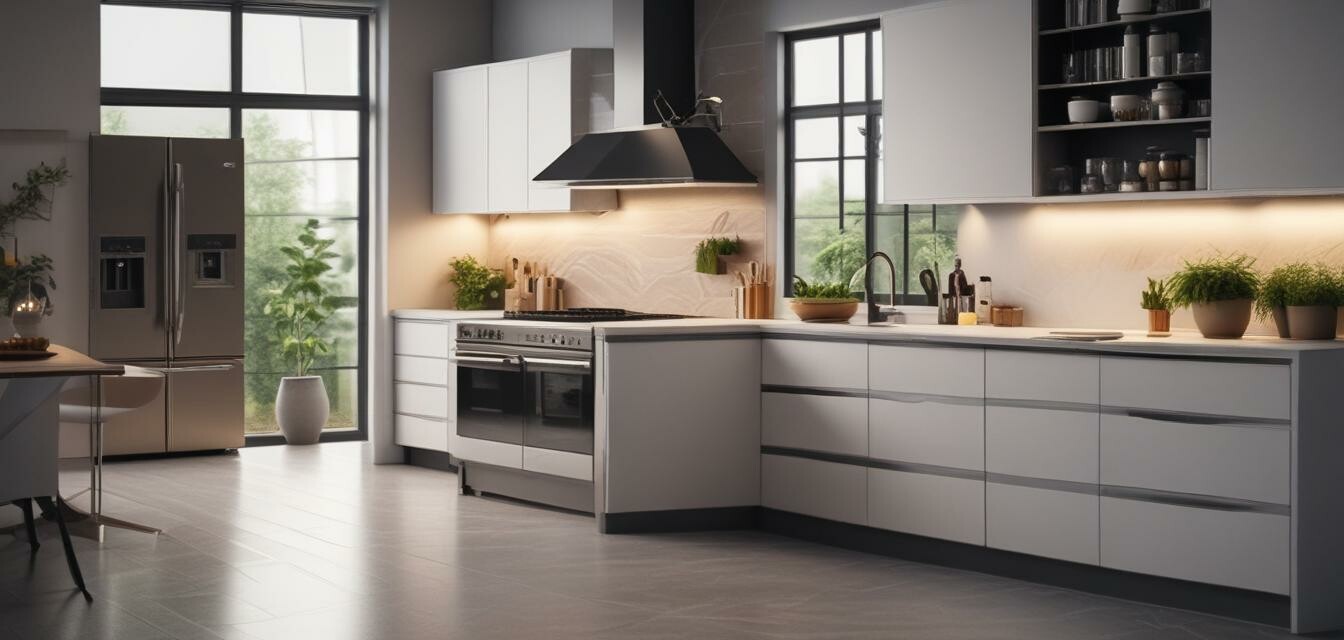
How Smart Appliances are Influencing a Greener Kitchen
Key Takeaways
- Smart appliances significantly reduce energy consumption in kitchens.
- The integration of IoT technology enhances operational efficiency.
- Investing in smart kitchen technology contributes to sustainability efforts.
- Many appliances offer features that promote eco-friendly practices.
- Staying updated with smart appliance trends can help consumers make informed decisions.
As we move into 2025, the kitchen is transforming into a space that blends technology and sustainability. Smart appliances are leading the charge, allowing households to consume less energy and promote eco-friendly practices. This article explores how these advanced devices are shaping a greener kitchen environment.
The role of smart appliances in energy efficiency
Smart appliances utilize advanced technology to optimize energy consumption. Let's take a look at some key areas where these devices excel:
| Smart Appliance | Energy Efficiency Features | Benefits |
|---|---|---|
| Smart Ovens | Humidity sensors, self-tuning | Reduced cooking times and energy use |
| Smart Refrigerators | Smart cooling technology, LED lights | Lower energy bills, longer food preservation |
| Touchless Faucets | Motion detection | Reduced water waste |
| Induction Cooktops | Precise temperature control | Less heat loss, faster cooking |
How IoT is changing kitchen operations
The Internet of Things (IoT) revolutionizes how consumers interact with their kitchen appliances. Many smart devices can connect to home networks, allowing users to monitor usage and control functions remotely. Here are some key benefits:
- Remote Monitoring: Check energy consumption and temperature settings from anywhere.
- Automated Scheduling: Set appliances to operate during off-peak hours for energy savings.
- Customizing Recipes: Receive real-time guidance and adjust cooking times based on ingredient availability.
Eco-friendly practices supported by smart technology
Smart appliances not only contribute to energy efficiency but also promote sustainable practices:
- Utilizing energy-efficient settings to minimize electricity usage.
- Encouraging users to recycle food waste with composting features.
- Facilitating meal planning to reduce food waste.
- Supporting the use of environmentally friendly cleaning agents.
Embracing the trend: Where to learn more
To keep pace with these emerging technologies, check out related resources:
- Buying Guides for Smart Appliances - Understand the features to look for.
- Smart Kitchen Tips - Learn how to maximize the benefits of your appliances.
- Energy-Efficient Appliances - Explore options for a greener kitchen.
- Latest News and Trends - Stay informed about new advancements in kitchen technology.
- Smart Ovens - Discover the best in smart oven technology.
Conclusion
Smart appliances are paving the way for a greener kitchen by enhancing energy efficiency, promoting eco-friendly practices, and providing intelligent control. As these technologies continue to evolve, they shape the future of our cooking spaces, helping us make sustainable decisions easier than ever.
Pros
- Significantly reduces energy consumption.
- Good for the environment and helps fight climate change.
- Convenient features save time and effort in the kitchen.
Cons
- Initial cost can be high.
- Requires consistent updates and maintenance.
- Potential technical issues may arise.